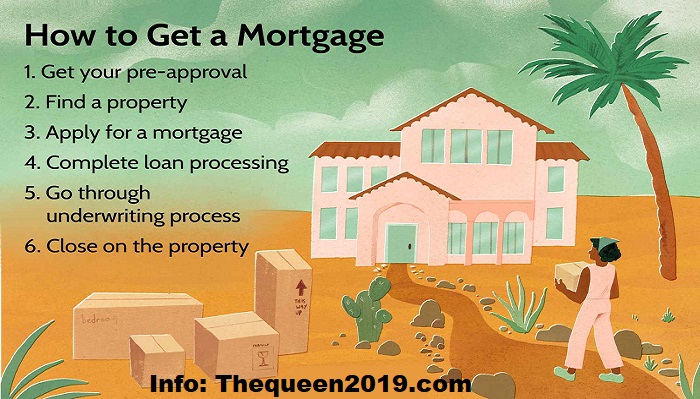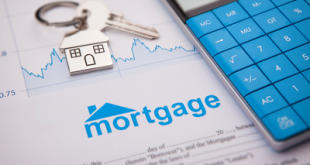How Does the Process of Getting a Mortgage Work?
Navigating the path toward homeownership can feel like embarking on an odyssey, especially when it comes to understanding the process of securing a mortgage. Fear not, as this guide aims to illuminate the intricate journey of obtaining a mortgage, offering clarity and insights at every turn. Buckle up as we embark on a journey through the labyrinth of mortgage procedures, demystifying each step along the way.

How Does the Process of Getting a Mortgage Work?
Embarking on the journey of acquiring a mortgage can feel daunting, but fear not! Let’s break down the process into manageable steps, empowering you to navigate the labyrinth of mortgage acquisition with confidence.
Understanding Your Financial Standing
Before diving into the mortgage application process, it’s crucial to assess your financial standing comprehensively. Take stock of your credit score, outstanding debts, and available funds for a down payment. Understanding these aspects will provide clarity on the type of mortgage you can qualify for and the associated terms.
Assessing Creditworthiness
Your credit score plays a pivotal role in determining your eligibility for a mortgage. Lenders use this metric to gauge your creditworthiness and assess the risk of lending to you. Ensure your credit report is accurate and take steps to improve your score if necessary.
Exploring Mortgage Options
With a clear understanding of your financial standing, it’s time to explore the myriad of mortgage options available. From conventional loans to government-backed programs like FHA and VA loans, each option offers unique terms and eligibility criteria. Research and compare various mortgage products to identify the one that best aligns with your financial goals and circumstances.
Fixed-Rate vs. Adjustable-Rate Mortgages
One of the key decisions you’ll face is choosing between a fixed-rate and adjustable-rate mortgage (ARM). While a fixed-rate mortgage offers stability with a consistent interest rate throughout the loan term, an ARM typically starts with a lower initial rate that adjusts periodically based on market conditions.
Preparing Your Documentation
Once you’ve identified the right mortgage product, it’s time to gather the necessary documentation for the application process. Be prepared to provide proof of income, employment history, tax returns, and asset information. Having these documents organized and readily available will streamline the application process.
Employment Verification
Lenders typically require verification of your employment status and income to assess your ability to repay the loan. Be prepared to provide recent pay stubs, W-2 forms, or tax returns to verify your income stability.
Submitting Your Application
With your financial documentation in hand, it’s time to submit your mortgage application. Whether you choose to apply online or in person, ensure that all information provided is accurate and complete. Any discrepancies or missing details could delay the approval process.
Application Review Process
Once your application is submitted, it undergoes a thorough review process by the lender. This involves assessing your creditworthiness, verifying the information provided, and determining the loan amount and terms for which you qualify.
Appraisal and Underwriting
As part of the mortgage approval process, the lender will conduct an appraisal of the property to assess its value. Additionally, your application will undergo underwriting, where the lender evaluates the risk associated with lending to you based on the information provided.
Property Appraisal
An appraisal ensures that the property’s value aligns with the loan amount requested, providing assurance to the lender that the investment is sound. The appraiser evaluates various factors, including the property’s condition, location, and comparable sales in the area.
Closing the Deal
With the appraisal and underwriting processes complete, it’s time to close the deal and finalize the mortgage transaction. This involves signing a myriad of documents, including the loan agreement, disclosures, and other legal paperwork.
Closing Costs and Fees
Be prepared for closing costs and fees associated with finalizing the mortgage transaction. These may include loan origination fees, appraisal fees, title insurance, and other expenses. Review the closing disclosure carefully to understand the breakdown of costs before signing.
Conclusion
Congratulations! You’ve successfully navigated the labyrinth of securing a mortgage, unlocking the door to homeownership. Armed with knowledge and confidence, you’re ready to embark on this exciting journey towards building equity and creating a place to call home.
FAQs
Can I qualify for a mortgage with bad credit?
While it may be more challenging, it’s still possible to qualify for a mortgage with bad credit. Explore options such as FHA loans or consider improving your credit score before applying.
How much of a down payment do I need?
The down payment requirement varies depending on the type of mortgage and your financial circumstances. Conventional loans typically require a down payment of 20%, while government-backed loans may require less.
What factors determine my mortgage interest rate?
Several factors influence your mortgage interest rate, including your credit score, loan type, down payment amount, and current market conditions.
How long does the mortgage approval process take?
The mortgage approval process can vary depending on various factors, including the lender’s workload, the complexity of your application, and the type of loan you’re applying for. On average, it can take anywhere from 30 to 45 days.
What happens if I can’t make my mortgage payments?
If you find yourself unable to make your mortgage payments, contact your lender immediately to discuss potential options. Depending on your circumstances, you may qualify for loan modification, forbearance, or other assistance programs.
Can I pay off my mortgage early?
Yes, you can pay off your mortgage early by making additional payments towards the principal loan balance. However, be sure to review your loan terms for any prepayment penalties or restrictions.


